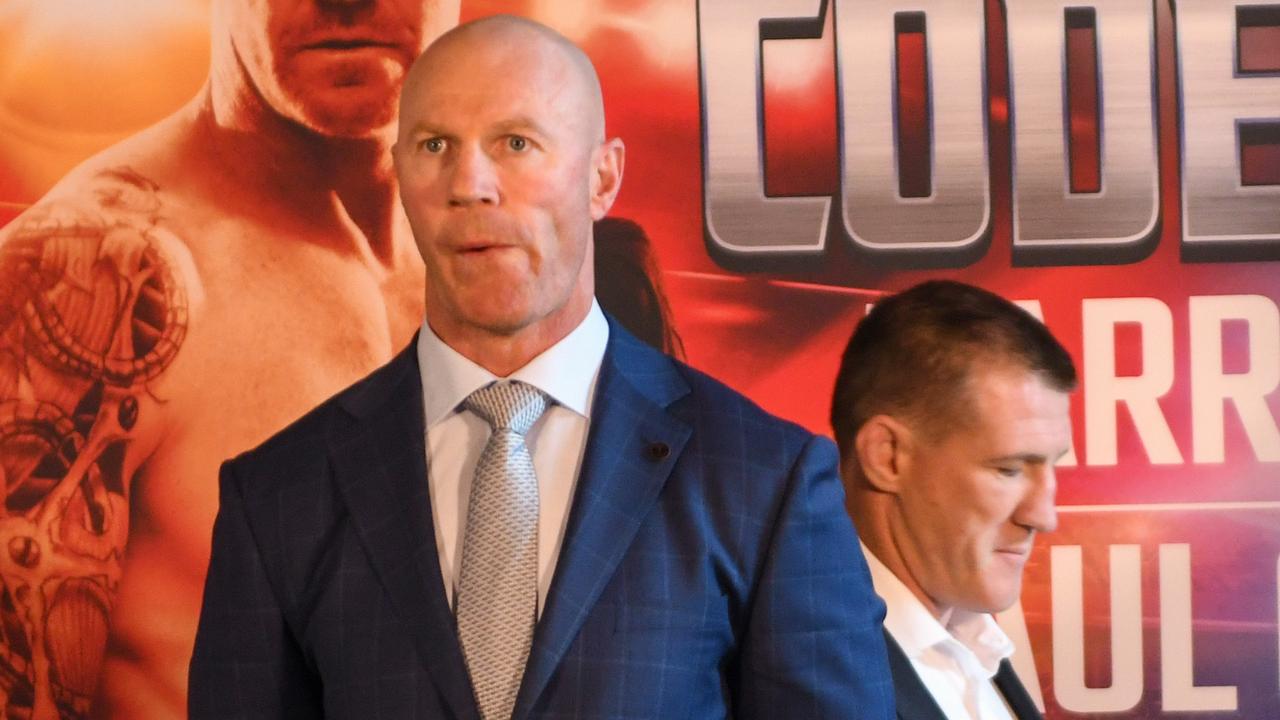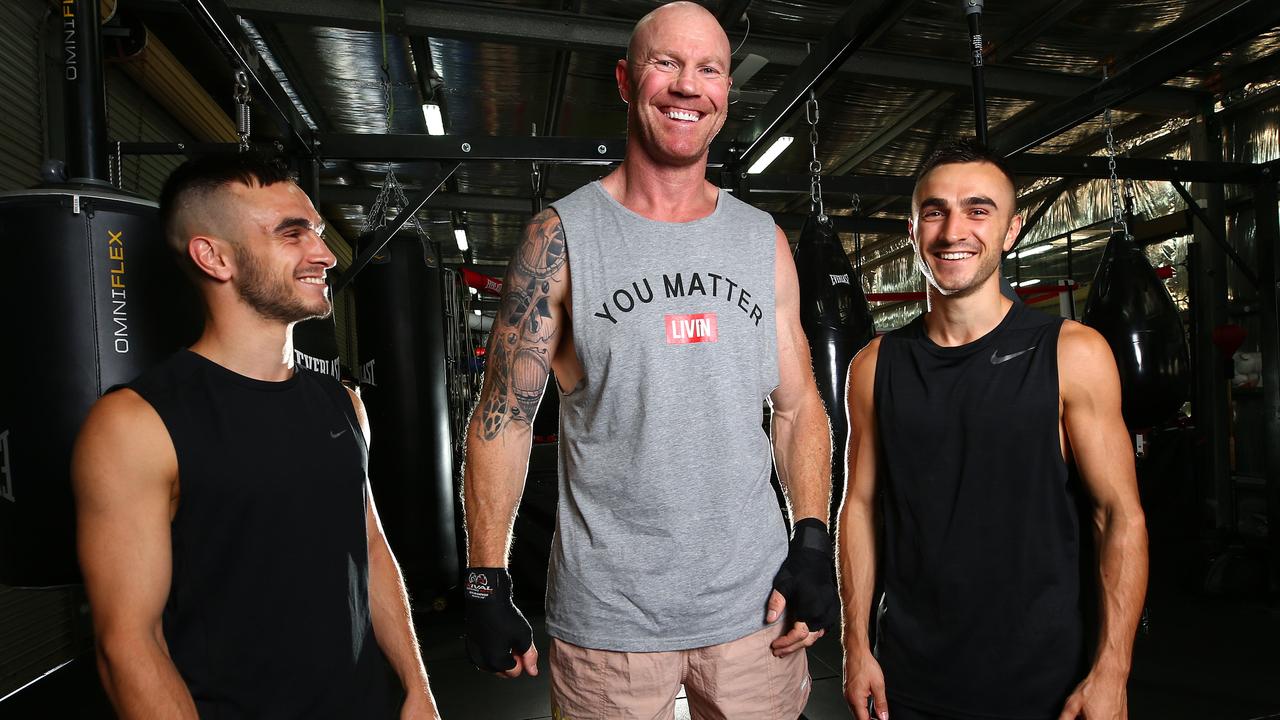Essendon chairman Paul Little denies the club tried to sack James Hird in in-depth interview
ESSENDON chairman Paul Little denied the club tried to sack James Hird in an in-depth interview with the Herald Sun’s Mark Robinson.
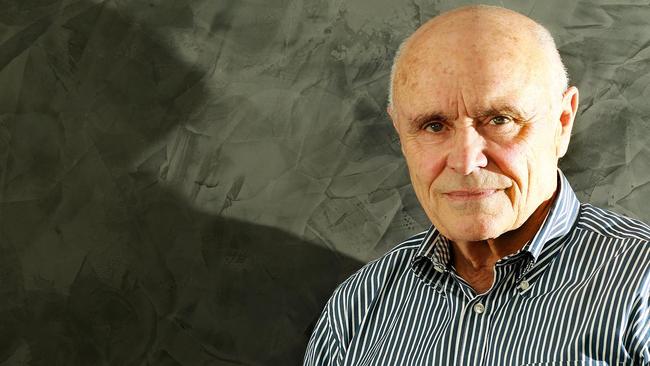
AFL
Don't miss out on the headlines from AFL. Followed categories will be added to My News.
HERALD Sunchief football writer Mark Robinson sits down with Essendon chairman Paul Little for an in-depth interview as the Essendon supplements saga continues.
MARK ROBINSON: Do you have faith in the independence of the AFL’s anti-doping tribunal?
PAUL LITTLE: Yes. There are three quality people sitting on the tribunal (retired judges David Jones and John Nixon, lawyer and former Swan Wayne Henwood). I believe the AFL and Essendon and our fans would like this handled correctly, quickly and to put it behind us.
MEMBERS COULD DECIDE HIRD, BOARD’S FATE
BOMBERS PLAYERS PAWNS IN POLTICAL GAME
MR: You have always maintained the players won’t take a deal. Do you stand by that?
PL: It’s not up to me to tell the players what they should do, but clearly the Chinese Wall that sits between us and the AFLPA is appropriate and that’s where the advice will come from. My personal belief is the majority of the players are very anxious that their record doesn’t show a conviction.
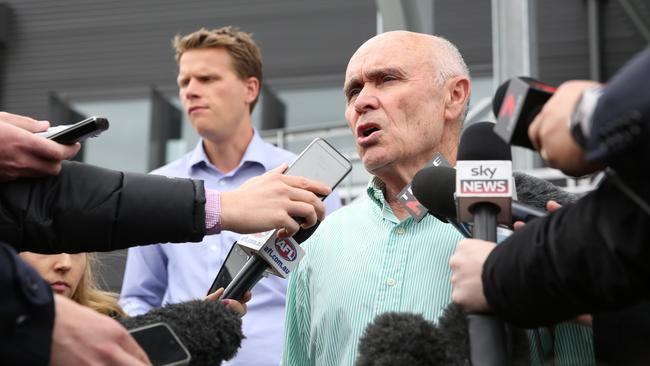
MR: Only a majority?
PL: There are some players who are less concerned about their record and more concerned about playing football.
MR: You have always said the players did not take performance-enhancing drugs or harmful drugs. How do you know they didn’t?
PL: I’ve always qualified that statement with “what we know”. I can’t give undertakings about what we don’t know.
MR: Have you spoken to (biochemist) Stephen Dank in the past 21 months?
PL: No.
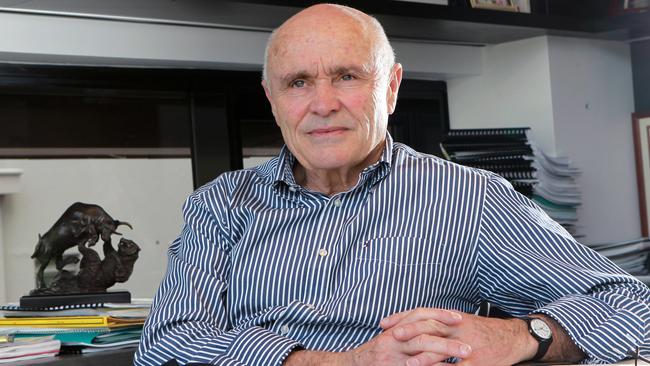
MR: What would you say to him if you had the opportunity?
PL: I’d encourage him to co-operate fully and speak to the truth.
MR: How has Essendon handled the whole affair?
PL: Being in a situation where you have no leverage and very little information, to some extent we’ve been reactionary. And I have felt uncomfortable about reacting and responding to those two influences. We’ve worked diligently. At board level we’ve certainly worked hard. Have we made mistakes? We probably have. Could we have done better? Hindsight is a wonderful thing. At the end of the day we’ve always had the best interests of the players at heart and our members, so I feel comfortable about that.
MR: Did you try to sack James Hird in early October?
PL: No. James Hird had a contract and had we had our way with James, we would have preferred he had not appealed the Federal Court decision, and I made that clear to James. But he was adamant that’s what he wanted to do and would do. And he does have legal rights. But we didn’t like it.
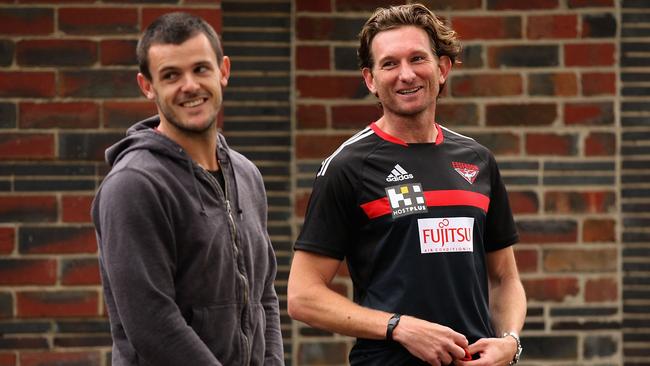
MR: I find that difficult to believe, Paul, that the club did not try several times to remove him.
PL: How do you try to sack someone? You either do or you don’t. And we didn’t. Had we wanted to sack James, we would’ve. If we did, we would’ve had a raft of legal actions and disgruntled supporters. His legal rights were there and we honoured those.
MR: What was your response when you read in Fairfax Media that you had sacked Hird?
PL: It came from one particular journalist and I thought to myself at the time, maybe this journalist had shot herself in the foot. Look, there was never a motion at board level to sack James because he was always the coach.
MR: Have you ever personally thought it was best to remove James Hird.
PL: No. James had the support of the playing group ...
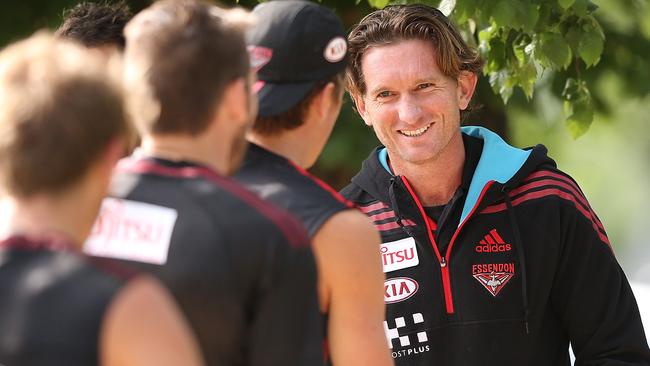
MR: Has he got the support of the board, Paul?
PL: He does because he wouldn’t be there otherwise. We had the senior playing group in this very room (Little’s board room) the day before the Crichton Medal and we questioned them in some detail. We wanted to understand what the playing group felt about the coaching generally next year. The response unanimously was they wanted James under certain conditions, but they wanted James.
MR: It has been reported that Hird threatened the club legally. True?
PL: No. James has never threatened the club and we have never threatened James.
MR: Why didn’t you respond publicly when it was reported Hird had threatened the club — in fact respond to all the alleged lies and mistruths and criticisms throughout all of this?
PL: I’ve not responded and I don’t think that’s worked to be honest. I’ve found through all of this, that if what I had said had been bent and twisted and distorted in commercial life then you’d be suing someone. It seems to me there is a different level of tolerance in AFL journalism, particularly with certain members, and they can say and do whatever they want. And because they have all the leverage in the press, if we respond it looks like a weak response. The short answer is I find it incredibly frustrating and annoying and so much so we’ve probably been less in the face of the press as our members would like.
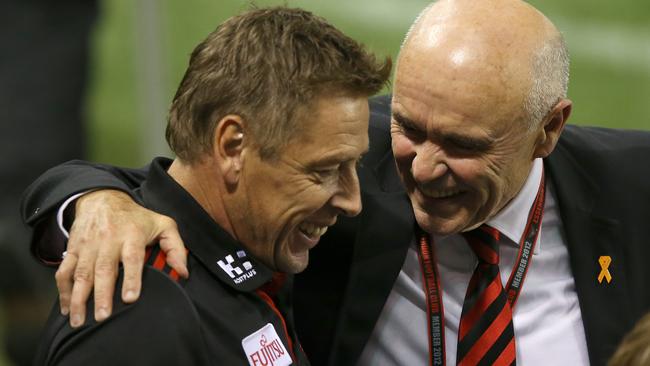
MR: Ten weeks ago it was inconceivable to think Mark Thompson would not be involved with Essendon next year. What happened?
PL: Little bit of history. Mark agreed to take on the job for 12 months. There was a clear internal and external perception that Mark’s role was one year. We also had an agreement with Mark that we wanted him to stay and we would create a role. We had been in attempted communication with Bomber for a number of weeks about fine-tuning the role, but what was happening unbeknown to us was Mark was transitioning from wanting just a role to wanting the role. That’s OK, too. He’s excellent at it, he had a taste of it, and all those things were happening with Mark. Mark’s declaration at the Crichton Medal that he would find it very hard to play with the second XVIII, that he wanted stay with the First XVIII as a figure of speech, really took us all by surprise. Not only had we not been able to catch up with Mark to talk about the lesser role, Mark had gone public and said he wanted a top role.
MR: Do you think he was advertising himself for the top role at Essendon?
PL: No, I think he was making himself available to anyone.
MR: Shocked at his comments?
PL: Yes, good word “shocked”. I didn’t see it coming.
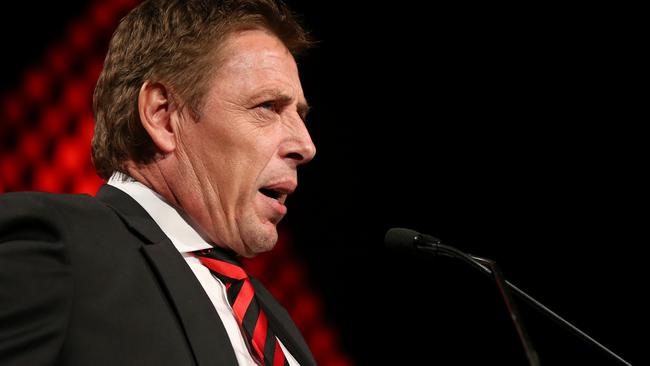
MR: My understanding is Bomber was led to believe he would be coaching Essendon in 2015. Was he offered the job?
PL: You can’t offer the job if it’s not there to be offered.
MR: Was he part of a contingency plan if Hird was not going to be there?
PL: We were going through the stage of building the coaching panel for next year ... and there could’ve been some discussion about 2015 and about what role would there be if James fell over hypothetically if players were found guilty. And he wanted to be considered for that. It wasn’t an immediate “get rid of James, I will step up” thing.
MR: Is Essendon going to pay Mark Thompson’s fine?
PL: No. We haven’t had that discussion with Mark or the AFL ... we have not been asked to pay it.
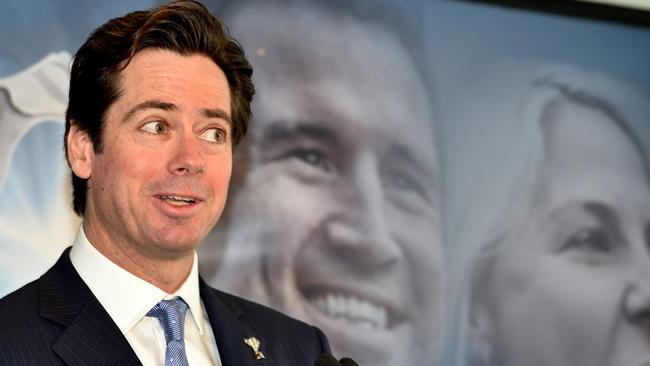
MR: How difficult a situation was it to depart from a premiership captain, a loved figure, and a bloke who coached last year when the place was crumbling?
PL: There are people who probably can’t forgive the club for that outcome, but we wanted him to stay, we offered him a job, but at no stage was there a promise of the top job. You tell me what else we could’ve done? We couldn’t put everything on hold waiting for Mark to work out if he does or doesn’t want a senior coaching job somewhere else. We had to move on.
MR: Is your relationship with the AFL healed?
PL: I’m working pretty hard to build a relationship.
MR: You lost all trust with the AFL leading up to August last year ... you declared World War III at the Olsen Hotel remember.
PL: There was a lot of repair work needed and we’ve been working hard at doing that. It’s been a breath of fresh air having Gillon McLachlan in the chair because Gill is a very good listener. I don’t always like what he says, but he’s a very good listener.
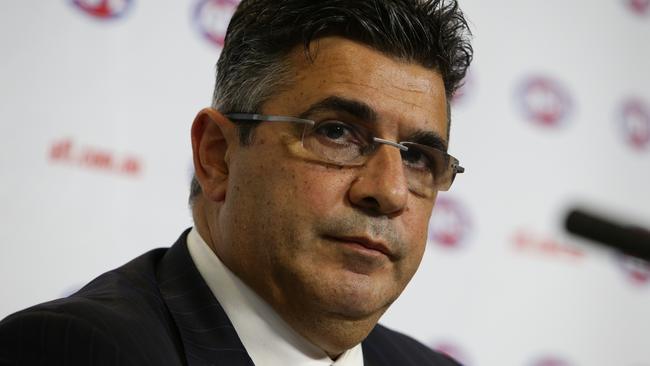
MR: Are you implying Andrew Demetriou wasn’t?
PL: I only got to know Andrew when David Evans said he didn’t want to do the role any more and I started to get to know Andrew.
MR: Paul, was it difficult between you and Andrew?
PL: If someone had come at me like I’d gone at him ... look, it was definitely difficult and to a large extent I understood that. But it’s like blaming the board for everything that is wrong with Essendon. Andrew got blamed for everything wrong at the AFL. But we are building a more trusting relationship with the AFL and are we there yet? Probably not.
MR: You and Gill were also at a low status were you not?
PL: We were both thrown in the deep end in negotiating this outcome and I came out throwing punches and so did he, and a lot of the really hard part of the negotiation was just the two of us in a room. And whilst we certainly threw a lot of punches at each other, we developed a respect. We do speak a couple of times a week.
MR: How was the club presidents’ meeting last year?
PL: It was terrible (laughs). I felt like a leper.
MR: You’ve had to swallow some pride haven’t you?
PL: It’s been a character-building exercise. I have done it all for the club and the players. I believe in the players and there’s no one in the queue behind me. I turn around to see who else would like this job, and there’s certain individuals who have (been) touted as potential chairmans, but they know and I know that’s impossible to happen in the next few years, so what’s that all about? It’s all about fairytale stuff. I believe I have the energy and the will to follow this through. There will be noise along the way. Journalists I don’t like, presidents whose comments I don’t like, the AFL alluding to certain things, that’s noise in my opinion. The main game is getting these players off and that’s where my focus is.
Originally published as Essendon chairman Paul Little denies the club tried to sack James Hird in in-depth interview

